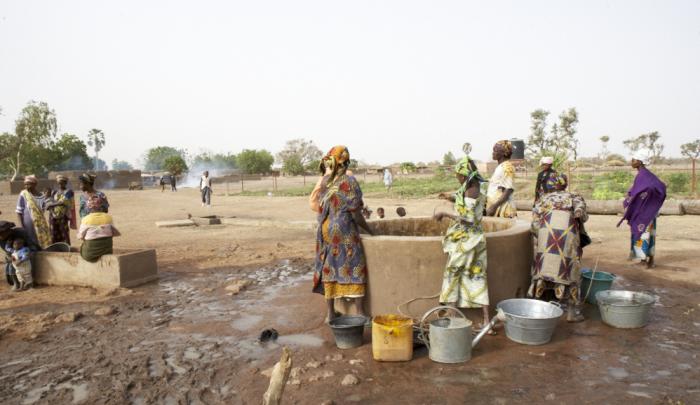
Bamako, MALI (May 21, 2014) — The recent spike in violence in northern Mali is a stark reminder of the chronic insecurity that continues to affect hundreds of thousands of Malian people. As the UN Security CouncilExternal Link meets to discuss the mandate of the UN Stabilization Mission in MaliExternal Link (MINUSMA), the protection of civilians should be priority.
“People have the impression that the conflict in Mali has been resolved but there is still a long way to go.” said Frantz Mesidor, country director of the Norwegian Refugee CouncilExternal Link (NRC) in Mali. “There are over 278,000 people displaced in Mali and in neighboring countries. Security has improved in some places, but violence and inter-communal conflict persists. For many thousands of people this crisis isn’t over.”
The UN mission needs to have the capacity to ensure that civilians are protected. The Center of Civilians in Conflict, the Danish Refugee CouncilExternal Link (DRC), the International Rescue CommitteeExternal Link (IRC), the NRCExternal Link, Oxfam, and External LinkWorld Vision — call on the UN Security CouncilExternal Link, the UN Department of Peacekeeping OperationsExternal Link, and MINUSMA senior leadership to:
- Prioritize the deployment of Community Liaison Assistants, a team of national staff tasked to work with local communities to improve communication between civilians and the mission and to increase mission awareness of protection needs
- Develop the capacity to minimize, track and respond appropriately to civilian harm caused by peacekeepers and partners, even when the harm is unintended
- Strengthen staffing and support for the unit in charge of developing the mission’s “Protection of Civilian” strategy
- Design a physical protection strategy that extends beyond large population centers and that allows for the reliable delivery of humanitarian assistance to people in need, without compromising the neutrality of humanitarian actors
MINUSMA was deployed in July 2013 to support the return of government control and services to the north. The mission also has a mandate to use “all necessary means” to protect civilians under threat, but resources are limited and needs far outstrip the capacity of the peacekeepers to deliver. Protests against MINUSMA — as well as other military actors — following the recent clashes in the Kidal region underline this misunderstanding and mistrust.
Throughout the north of Mali there is a serious lack of adequate water, shelter and medical assistance. More than 1.5 million people are facing chronic food shortages. However persistent insecurity throughout the north has made it difficult for aid organizations to deliver lifesaving assistance to Malians who need it.
According to Chance Briggs, national director of World Vision Mali, “Day-to-day insecurity is blocking the delivery of aid, and hampering economic recovery. MINUSMA has a tough mandate, but stability will not be achieved without the effective protection of civilians. The Security Council needs to make sure that the mission gets the resources it needs to do the job.”
– END –
About World Vision:
World Vision is a Christian humanitarian organization conducting relief, development, and advocacy activities in its work with children, families, and their communities in nearly 100 countries to help them reach their full potential by tackling the causes of poverty and injustice. World Vision serves all people regardless of religion, race, ethnicity, or gender. For more information, please visit www.WorldVision.org/media-center/ or on Twitter @WorldVisionUSA.
Highlights
- More than 278,000 people displaced in Mali and in neighboring countries
- Day-to-day insecurity is blocking delivery of aid, says World Vision